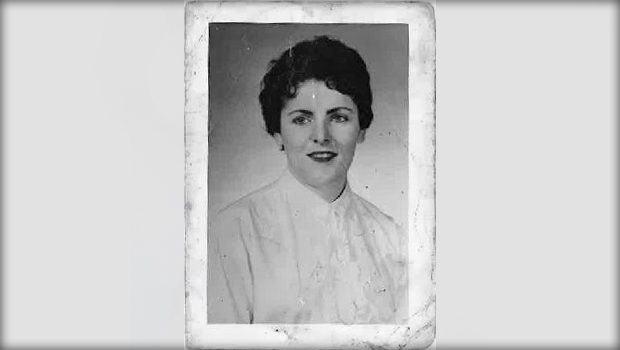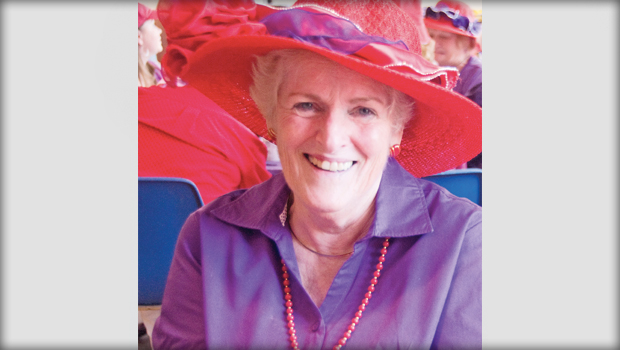By Ann Cummings
In 1960, the Democratic Party nominated John F. Kennedy as their candidate for the Presidency of the United States of America. It was a significant accomplishment for an Irish Catholic to be a candidate for the Presidency.
His candidacy was a major setback for those who did not care for Irish Catholics. Historically those persons worked to try to hinder advances by Irish Catholics.
But we are a strong people. Our immigrant ancestors came from Ireland for generations before the American Revolution and arrived in droves with the start of the Great Starvation. Starvation and the folk myth that the streets in America were paved with gold were great incentives to board ships, of varying degrees of seaworthiness, with passengers weak and often diseased, that were bound westward.
It was a great opportunity to begin life over somewhere other than in an Ireland with few jobs and widespread oppression.
The emigrants sailed knowing that they most likely would never see their families again. It took a lot of courage to set sail. It was a hard row to hoe.
Here, they often held low paying jobs or worked in the mines and lived in slums and ghettos. The Irish lived by their wits to survive and to keep their families here together.
The Catholic Church was their spiritual home now. They held dances and dinners as a way to meet others from their former places to get news. At these functions, they would also meet prospective spouses. In some families they were told to marry their own kind.
These early immigrants set the stage for their descendants to succeed. They worked to progress and to put an end to their being called ignorant, apes, harps, and shanty Irish. They valued education. We were smarter than they gave us credit for.
Some families such as the Kennedys and the Fitzgeralds entered politics. Others worked to start labor unions to get better wages, better housing, and better schools. You can see some of what it took to get where the Irish are today.
In 1960, I volunteered with the Democratic Party to help get Kennedy elected. They called us the Kennedy Girls. I was assigned to my area, Southwest Philadelphia, the 40th Ward. I went door-to-door canvassing to help get votes for Kennedy.
That’s when I found out how prejudiced some persons were against Irish Catholics. Doors were slammed in my face; some spat at me, and unkind words were said against Irish Catholics. I tried to make them understand but some showed the darker side of their personalities. They were so rude to me.
I continued canvassing my neighborhood. I did meet many Irish Catholics who were in favor of Kennedy. That made my job seem worthwhile.
When I got home, I told my parents of my experiences. My mother asked, “What is Kennedy going to do for you when he is President?” My father said it would be the first time an Irish Catholic would be President and finally an Irish Catholic will fill the Chair. I continued to work for the Democratic Party at the ward headquarters.
My sister, Theresa McCloskey (now Silvano), also was a Kennedy Girl. She worked for the Democratic Party on Walnut Street in downtown Philadelphia.
We learned that Kennedy was coming to Philadelphia. I was told I would be given a ticket to see and hear him speak at the Sheraton Hotel. I would get to meet him, the future President.
When I arrived at my job as a bookkeeper and teller at a private bank, I told my boss, a vice president there and an Irish Catholic, about my invitation and requested that my lunchtime be changed. He said. “No. You can’t be seen at the rally because all those running the bank are Republicans and you could lose your job.”
That was a lot to think about, as I would have to answer to my mother about why I was fired. I chose to keep my job. That’s how times were in the 1960s.
I was a bookkeeper and teller and where I sat I kept my purse next to me. The purse sported a large Kennedy for President button. But as I said, the bank was run by Republicans. When one of the leaders of another company in my building saw my Kennedy button, he complained to my boss about seeing the button displayed for all to see.
Later I was called by my boss to come to the boardroom. He said there was a complaint about my Kennedy button and that I had to remove it or lose my job. I did remove the button. I know who complained but I’ll mention no names.
For devilment, when I went out to lunch I had the button back where it belonged on my purse. I would pass this self-important busybody and he would see the offending political button clearly. He complained again to my boss. My boss told him “I have no say in what Ann does after she leaves the premises.”
Jack Bonner, the 40th Ward Leader, had arranged for Kennedy to appear in the ward at the parking lot of the Penn Fruit food store at 43rd and Locust Streets. I could not take the day off work with out losing a day’s pay. I went to work.
My beloved mother was shopping at the Penn Fruit store. When she left the store she was told that Kennedy was coming to speak and she couldn’t leave. She was waiting near the exit when the Kennedy motorcade arrived and stopped. Kennedy shook hands with her and spoke a few words with her. “What is your name?” “Mrs. McCloskey.” “I can hear your Irish brogue, now give me a vote on Election Day.”
My mother was thrilled. She was the happiest lady in the neighborhood. She felt like a celebrity. I was so happy that she shook the hand of the future President.
I missed seeing Kennedy two times. If I didn’t have bad luck, I would have no luck at all.
J.F. Kennedy was assassinated on November 22, 1963. It was a black day for the nation. It was the day the world stopped. I just couldn’t believe that this could happen in my country. Who would do such an unforgivable act like this? I blessed myself and said a prayer for him, and his family and for my country.
Every American was glued to a television set. We all watched history. I just started to cry.
I called my parents to see if they saw the assassination on TV. Mother was crying. She didn’t want to talk. “Go back and watch the motorcade, the Secret Service men circled the car Kennedy was in.”
Earlier Kennedy had refused to use the bubble top. It was removed and the bulletproof windows were rolled down. President Kennedy and Mrs. Kennedy were settled in the rear seat. The motorcade passed the Book Depository in Dallas and the sharp, brutal sound of gunfire was heard. The Secret Service men hollered that the President had been shot. All the world saw this horrible act.
Kennedy was rushed to a hospital and there he was pronounced dead.
It was like a dream, to see this with your own eyes. It’s an unforgettable scene. Like a nightmare. When am I going to wake up? Those four terrible days brought us face to face with the future.
John F. Kennedy was buried in Arlington Cemetery. The bugler sent the chilling notes of “Taps” as he sounded a long goodbye to “Johnny, We Hardly Knew Ye.” May you rest in peace, Mr. President. Amen.
My mother and my sister Theresa went to Washington, D.C. to view John F. Kennedy’s casket in the Rotunda. I still have his memorial card.
Ann Cummings is a retired nurse and lives in Havertown, PA.


